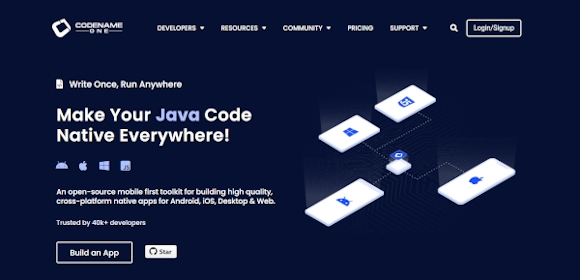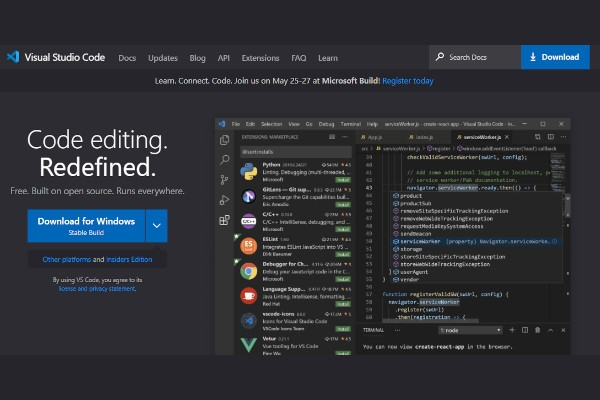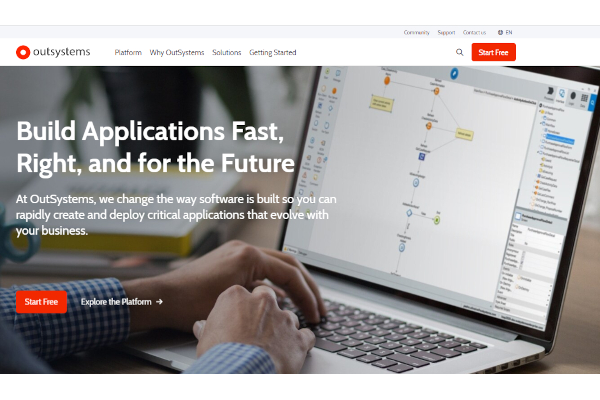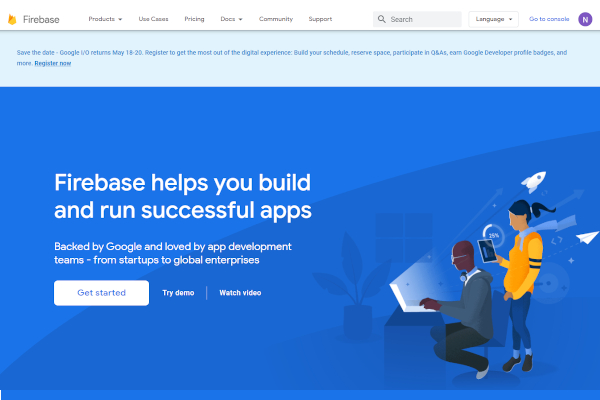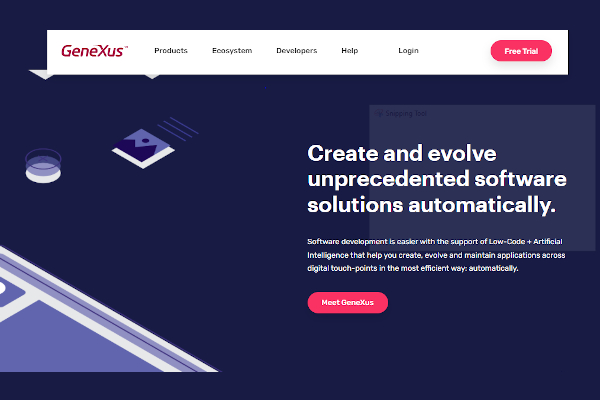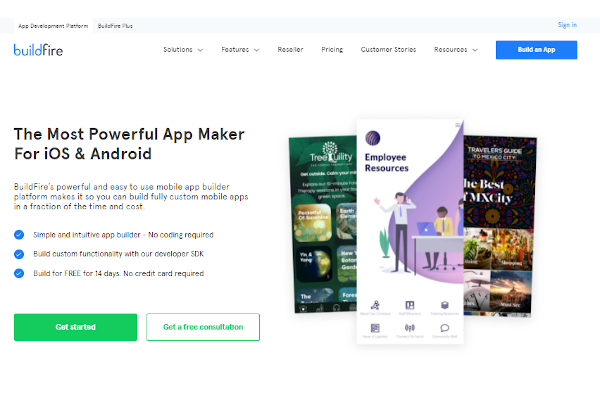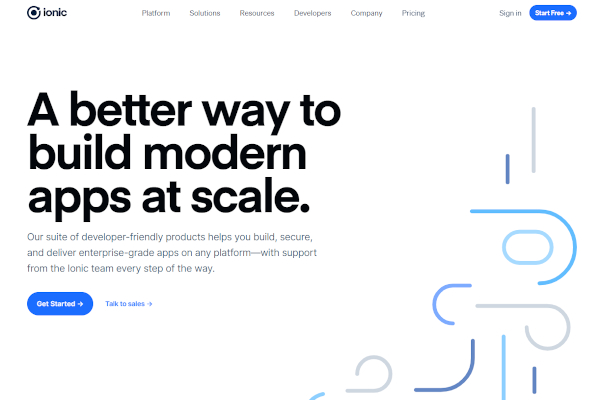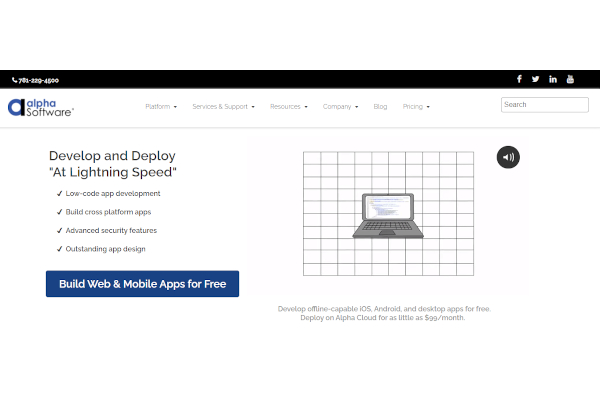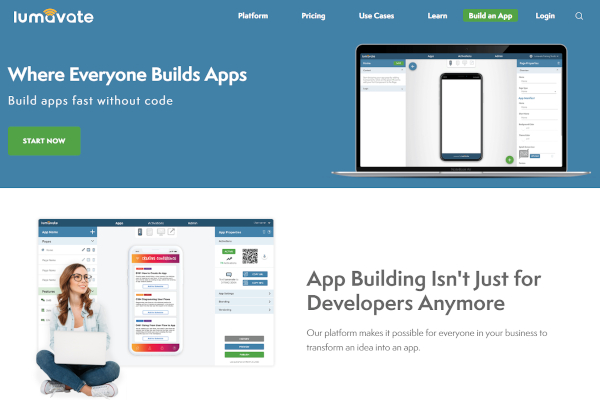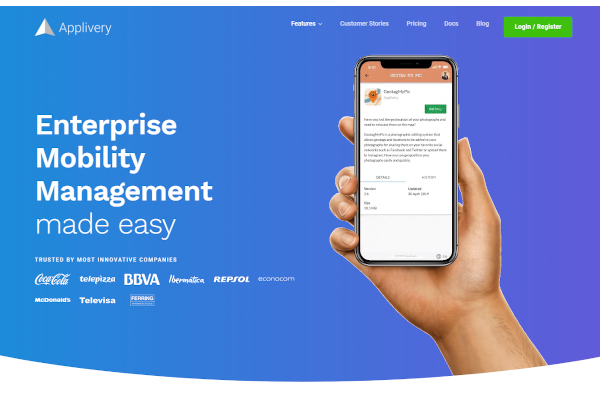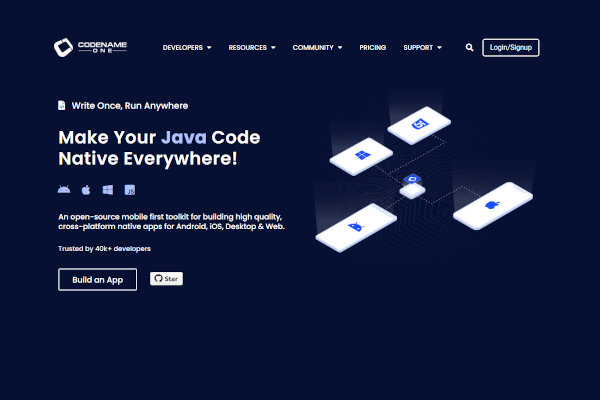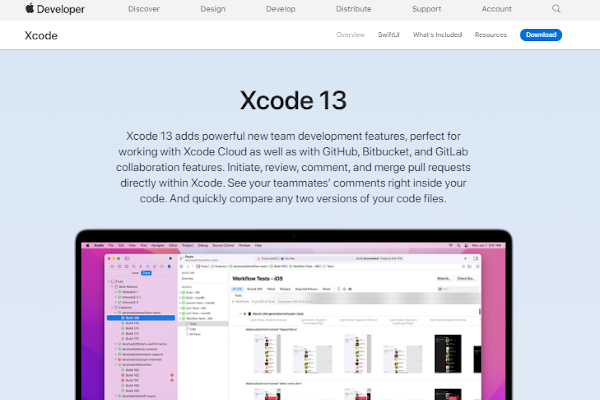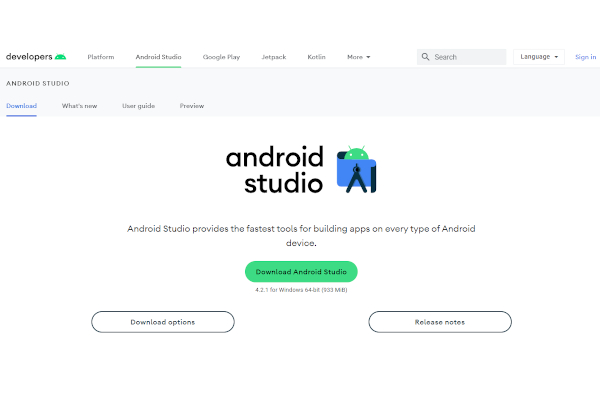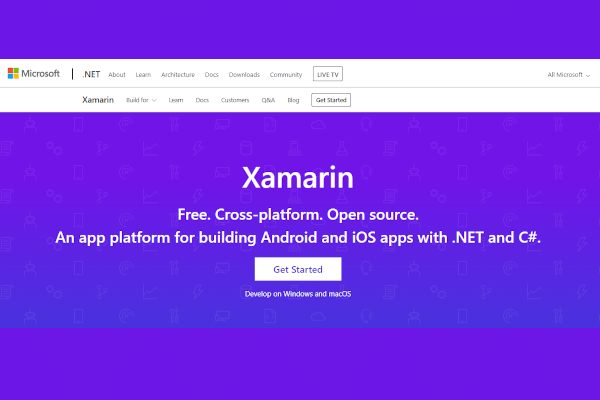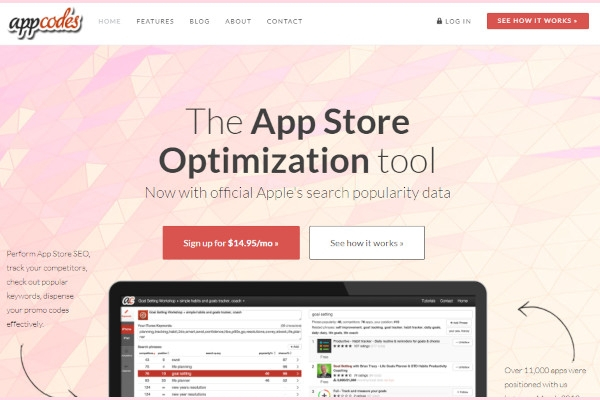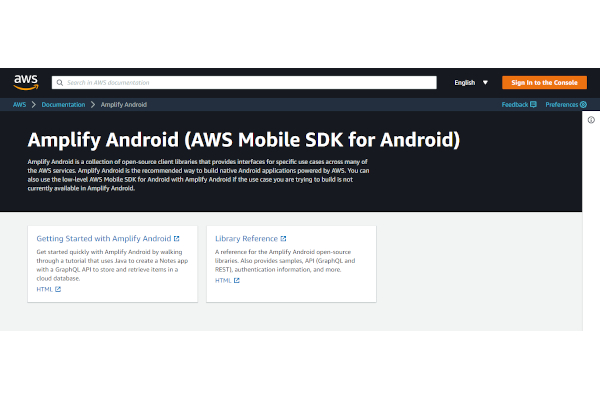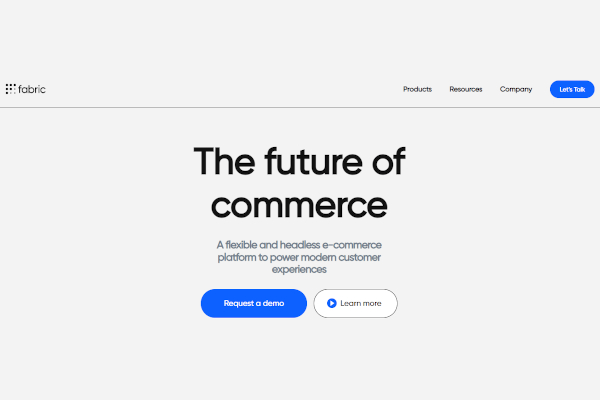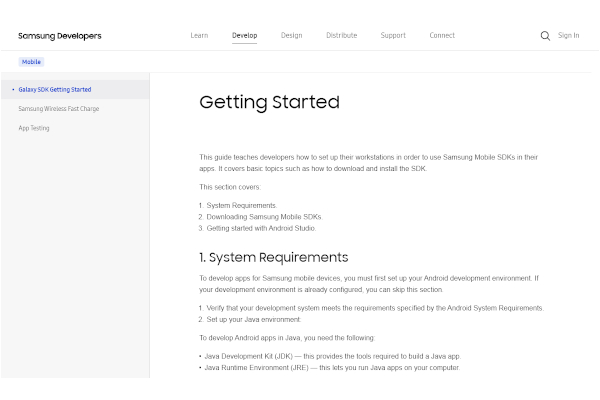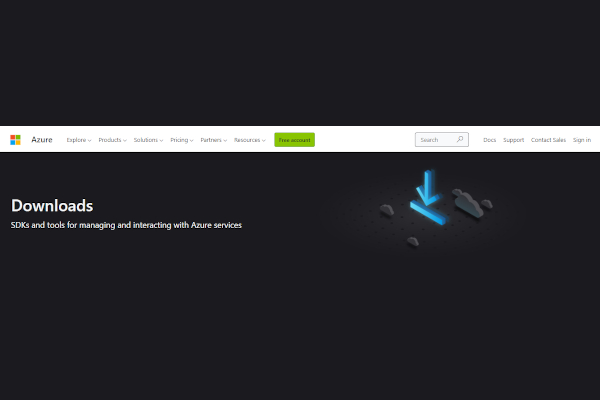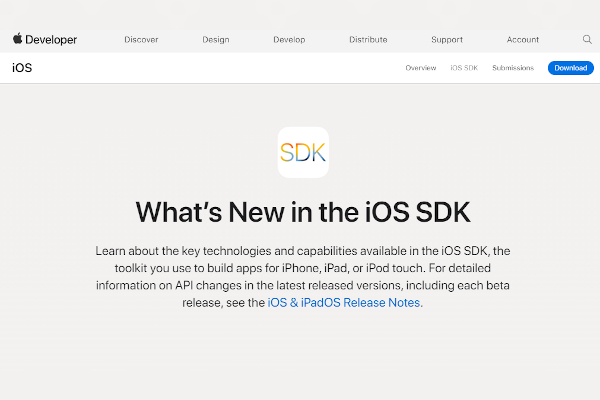The creation of a mobile application might be sped up with the assistance of a platform that was made expressly for that function. These instruments make application programming interfaces (APIs) accessible in order to simplify the process of connecting to backend services. It does this by offering a visual development environment, which makes the process of designing the software much easier.
19+ Mobile Development Platforms
1. Visual Studio
2. OutSystems
3. Firebase
4. GeneXus
5. BuildFire
6. Ionic
7. Alpha Anywhere
8. Lumavate
9. TrackVia
10. Applivery
11. Codename One
12. Xcode
13. Android Studio
14. Xamarin
15. AppCode
16. AWS Mobile SDK
17. Fabric
18. Samsung GALAXY SDK
19. Azure SDK
20. IOS SDK
What Is Mobile Development Platforms?
Mobile development platforms are a series of development software where programmers and developers create mobile software apps to be used in smartphones and tablets in a singular framework software. Most, if not all, apps development software are designed with iOS and Android integration in mind as they are both popular mobile operating systems, though cross-platform apps are possible to ensure it’s supported by many operating systems possible.
Benefits
Mobile development platforms allow developers to create mobile apps that are compatible with Android and iOS, empowering them with tools to design the perfect app software that is supported by two of the popular operating systems. The centralized, streamlined process of mobile app development software allows developers a space to design and create mobile apps software with tools available at their disposal. The app development software also helps companies to build their software apps effectively.
The mobile app development software also allows developers to create game apps to be played on smartphones and tablets. The mobile application development software also offers cross-platform apps possible to ensure that the apps they are developing are supported by multiple mobile operating systems possible. The build mobile app software also allows companies to expand their services to customers through mobile apps which interaction between the company and customers can be done through smartphones.
Features
Mobile development platforms should be designed to create mobile apps in mind, meaning it has a different programming language than typical app development software for computer programs. The mobile app development software should also have mobile development tools for developers to create apps based on UI and UX creation. The mobile app development software should also have mobile app testing software tools that allow developers to test the software app for errors and debugging either through internal teams or external testers. The software should also have software developer’s kit tools that help developers to collaborate with other developers, as well as to debug errors and analyze the coding of the mobile apps.
Top 10 Mobile Development Platforms
1. Codename One
Codename One provides an open-source mobile development software that has cross-platform native app capabilities. Codename One has 3 employees and earns annual revenue of $400,000.
2. Xcode
Xcode is owned and developed by Apple, which the parent company has 147,700 employees and earned a revenue of $65.339 billion in 2020.
3. Android Studio
Android Studio is owned and developed by Google, which the parent company has 139,995 employees and earned a revenue of $65.1 billion.
4. OutSystems
OutSystems has 1,883 employees and earns annual revenue of $273 million.
5. Firebase
Firebase is owned and developed by Google, which the parent company has 139,995 employees and earned a revenue of $65.1 billion.
6. Alpha Anywhere
Alpha Anywhere has 52 employees and earns annual revenue of $7.5 million.
7. BuildFire
BuildFire has 44 employees and earns annual revenue of $6.4 million.
8. AppCode
AppCode has 25 employees and earns a revenue of $5 million.
9. Visual Studio
Visual Studio Code has around 25 employees and earns a revenue of around $5 million.
10. Lumavate
Lumavate has 27 employees and earns annual revenue of $3.9 million.
FAQs
Who would use mobile development platforms?
IT department teams from companies would most likely use mobile development platforms as companies may need app software to create and deploy to their customers. Development companies requested by companies may also use the software as well.
Are mobile development platforms similiar to integrated development environments software?
While both software shares similar features and tools, they differ in functionality as mobile development platforms specifically focus on the development of mobile apps which integrated development environments are more generalized in app development in any platform.
How much does mobile development platforms cost?
Pricing for mobile development platforms is usually customized, with each software offering different subscription tiers that offer more features as the prices increase. Pricing for mobile development platforms varies depending on the features available and the intended target users. Low-profile development teams may benefit from low-cost mobile development platforms while high-profile developers may benefit from high-cost software.
Mobile app development is always changing, from native apps to apps that work across several platforms. As a result, there has been a significant paradigm change in mobile development trends regarding the use of code, script, platforms, integration, development methodology, and deployment. Technologies such as the Internet of Things (IoT), artificial intelligence (AI), machine learning (ML), and blockchain are adapted to provide the smartest, safest, and best user experience as we go towards hybrid, native, and evolving web apps.
Related Posts
10+ Best Chemical Software for Windows, Mac, Android 2022
12+ Best Vulnerability Scanner Software for Windows, Mac, Android 2022
4+ Best Bundled Pay Management Software for Windows, Mac, Android 2022
10+ Best Trust Accounting Software for Windows, Mac, Android 2022
10+ Best Patient Portal Software for Windows, Mac, Android 2022
13+ Best Virtual Reality (VR) Software for Windows, Mac, Android 2022
12+ Best Bed and Breakfast Software for Windows, Mac, Android 2022
15+ Best Resort Management Software for Windows, Mac, Android 2022
14+ Best Hotel Channel Management Software for Windows, Mac, Android 2022
12+ Best Social Media Monitoring Software for Windows, Mac, Android 2022
10+ Best Transport Management Software for Windows, Mac, Android 2022
10+ Best Other Marketing Software for Windows, Mac, Android 2022
10+ Best Top Sales Enablement Software for Windows, Mac, Android 2022
8+ Best Industry Business Intelligence Software for Windows, Mac, Android 2022
10+ Best Insurance Agency Software for Windows, Mac, Android 2022
